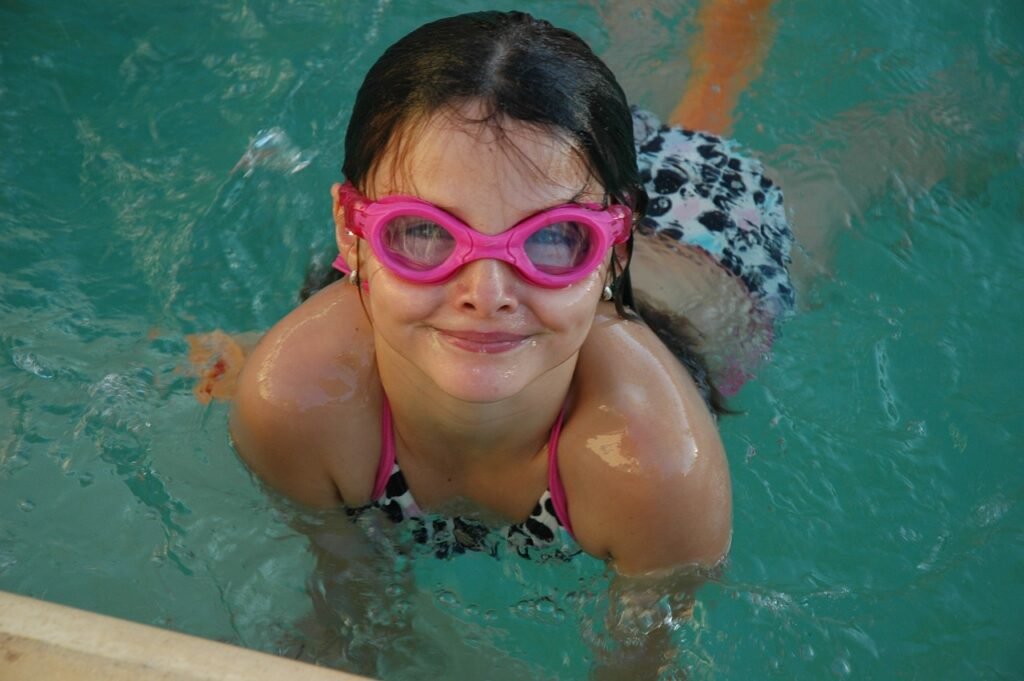As parents, one of our biggest concerns is keeping our kids healthy. However, many parents notice that their children often seem to get sick, such as colds or fevers, after swimming. This can be worrying and frustrating to deal with. In this blog post, I will explore some of the most common reasons why swimming may lead to illness in children, and provide some tips on how to help prevent kids from getting sick after being in the pool or other bodies of water. Lets continue to why my kids always sick swimming.
Why Does My Child Get a Fever After Swimming?
- Fever
- Nausea or vomiting
- Abdominal pain or cramping
- Diarrhea
- Viruses like influenza that cause the flu
- Bacteria like Streptococcus that cause strep throat or skin infections like impetigo
- Parasites like Cryptosporidium or Giardia that cause crypto or beaver fever
Child Always Gets a Cold After Swimming
- Temperature changes – Going from a warm pool to cooler, air-conditioned indoor areas can lower immunity.
- Chloramines – These are chemical byproducts formed when chlorine mixes with substances in the water like sweat, urine and dirt. High levels can cause eye and respiratory irritation.
- Pool chemicals – Besides chlorine, other disinfectants like bromine may also irritate the lungs and make kids more susceptible to colds.
- Crowds – The higher the bather load, the greater the chance of exposure to cold viruses from sneezes and coughs of infected swimmers.
Flu-Like Symptoms After Swimming in Pool
- Influenza viruses can survive and remain contagious in chlorinated water for several days.
- A single cough or sneeze can release up to 40,000 virus-containing droplets into the air or surrounding surfaces.
- Young children especially may get water up their noses from splashing or submerging, allowing direct entry of viruses into the respiratory tract.
- The virus can also be picked up from surfaces like pool decks, railings, shower areas touched by infected individuals.
- Symptoms usually appear 1-4 days after exposure but can take up to 2 weeks, so swimmers may not realize they are contagious.
Child Swallowed Pool Water and Threw Up
- Irritation of the stomach from chlorine chemicals
- Osmotic effects when highly chlorinated water enters the stomach
- Presence of other contaminants in the water like germs, dirt or chemicals
- Individual sensitivity – Some kids seem more prone to react this way
Child Has Fever After Swimming in Pool
- Onset of other cold/flu symptoms like cough, sore throat or body aches
- Abdominal pain, nausea if large amounts of pool water were swallowed
- Diarrhea or vomiting in addition to fever
- Fever persisting for more than 24-48 hours
- Very high temperatures over 103°F
- Underlying health issues like asthma acting up
Cold Like Symptoms After Swimming in Pool
- Shower as soon as possible after swimming to wash off chlorine and germs.
- Change out of wet swimsuits/towels right away to avoid prolonged exposure.
- Dry off thoroughly, especially hair which can harbor viruses.
- Consider using a humidifier at home to keep nasal passages moistened.
- Boost immunity with a healthy diet, rest, vitamins if needed.
- Avoid swimming when feeling ill or if there is an active cold/flu outbreak.
- Swim during less crowded times if possible.
- Practice good hand hygiene especially before touching face or eating.
- See a doctor if cold symptoms persist longer than 10 days or worsen.
How to Avoid Getting Sick After Swimming
- Shower immediately after swimming to rinse off chlorine, chemicals and germs.
- Change out of wet swimsuits and towels. Dry off thoroughly.
- Monitor kids closely for signs of fever, vomiting or diarrhea within 24 hours.
- Encourage proper cough/sneeze etiquette and frequent handwashing.
- Consider using goggles to prevent water from entering nose/mouth.
- Swim during less crowded times if possible to avoid exposure.
- Maintain good pool hygiene and don’t swim if feeling unwell.
- Boost immunity through a balanced diet, rest, vitamins if needed.
- See a doctor promptly if symptoms persist beyond 24-48 hours.
- Get vaccinated against preventable infections like influenza.
- Be aware that some kids may just be more prone to reacting to pool chemicals.
![Picture of Abhishek Sonkar [Author]](https://kidzoot.com/wp-content/uploads/2023/07/Front-photo-for-Website-300x300.webp)
Abhishek Sonkar [Author]
Meet Abhishek Sonkar, [B.com, B.Ed., M.Ed.], a child development specialist with years of experience in the field. He has written numerous blog posts on child development and parenting.
Frequently Asked Questions
Fever can sometimes occur due to swallowing chlorinated pool water, which can irritate the stomach and throat. It’s also possible the fever is from an infection contracted before, during or after swimming in the pool. Viruses like influenza are commonly spread in pools.
While swimming doesn’t directly cause colds, public pools provide ideal conditions for cold viruses to spread due to crowds, temperature/humidity changes, and chemical irritants. This can make kids more susceptible to infection and symptoms.
It’s not uncommon for young kids to accidentally swallow small amounts of chlorinated water, which may cause nausea or vomiting in some due to stomach irritation. However, large amounts ingested or persistent vomiting would need medical evaluation.
Parents should monitor kids closely for 24-48 hours after swimming for potential symptoms like fever, vomiting, diarrhea, or cold/flu signs. Anything persisting beyond 1-2 days may require medical attention depending on severity.
Thoroughly showering after, avoiding overcrowded pools, practicing good hygiene, boosting immunity through diet/rest, and seeing a doctor promptly for ongoing issues can all help reduce risks. Vaccines like flu shots also offer some protection.
FOR MORE VALUABLE TIPS BUY OUR PARENTING COURSES https://www.kidzoot.com/courses/
CONSULT YOUR PERSONAL PARENTING SOLUTIONS VIA APPOINTINTMENT AT https://www.kidzoot.com/appointment-booking/
Follow Us on Twitter www.twitter.com/kidzootworld

